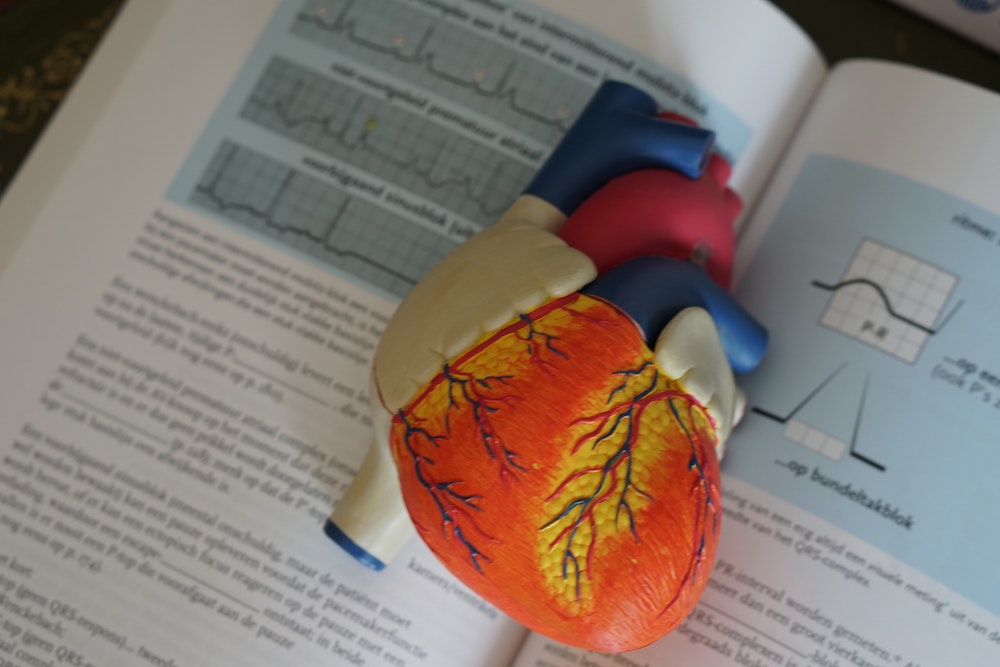3 Supplements for Heart Health: What You Need To Know

The heart is one of the essential organs in our body because it is the source of blood circulation and blood pressure. Healthy blood flow and pressure are crucial for a strong and healthy heart. As we age, our risk for heart disease increases, as well as other risk factors like high blood pressure and cholesterol, smoking, and diabetes.
What is the heart?
In the center of the chest is a muscular organ called the heart. Your fist would be approximately the correct size. The seat performs many functions, but its primary function is to pump blood throughout the body, which consists of red blood cells, white blood cells, and platelets.
Red blood cells transport oxygen to parts of the body that need it, while white blood cells fight infection, and platelets help blood clot when a cut or wound occurs. Every second, the heart beats about 100,000 times. When the heart contracts, blood flows through vessels, supplying the body with nutrients and oxygen.
When the heart relaxes, the blood flows back to the heart. The core functions like a pump, so if there is reduced or poor blood flow, organs like the brain, kidney, and liver are less likely to receive the nutrients they need.
Diet to promote heart health
Many factors, including genetics, family history, and lifestyle factors like diet, exercise, and stress management, influence heart health. The healthiest diet for your heart is one that is low in saturated fat, high in fiber, low in cholesterol, and rich in plant-based foods.
Here are some heart-healthy diet suggestions:
- Follow a Mediterranean-style diet. It’s been found to have a positive effect on heart health. This diet is high in fiber, low in saturated fats, and rich in plant-based foods, like fruits and vegetables.
- Cut down on red meat. Eat more fish, nuts, beans, and legumes. Red meat is high in saturated fat, cholesterol, and iron.
- Limit your intake of processed foods. Stay away from sugary drinks and high-fat snacks like chips and cookies.
- Drink plenty of water.
Vitamin D and calcium
Vitamin D is crucial for heart health. This vitamin is produced when your skin is exposed to the sun. Vitamin D is also found in food, such as eggs, cheese, and fish. It helps maintain healthy bones and muscles, and it may reduce the risk of heart disease.
Studies have shown people with low levels of vitamin D are at higher risk for heart disease. It’s recommended that adults get 600 IU of vitamin D daily. Luckily, it’s straightforward to increase your intake of this vital vitamin.
You can get it through foods, supplements, and even just a few minutes of sun a week will do the trick. You can also get vitamin D in fortified foods like milk, yogurt, and cereal. One cup of milk or yogurt will give you about 100 IU of vitamin D.
Fish oil and omega-3s
Fish oil is one of the essential nutrients for heart health. It is an excellent source of omega-3 fatty acids, which can help lower your risk for heart disease, lower blood pressure, and reduce triglyceride levels. The best heart-healthy fish oils come from cold-water fish, like salmon, mackerel, herring, sardines, and anchovies.
Furthermore, walnuts, flaxseed, and chia seeds contain omega-3 fatty acids. While most people get the omega-3s they need from a healthy diet, others may need a supplement.
Many different fish oil brands are available, with different flavors and forms. Some may also come in vegetarian capsules. Speak with your doctor or a nutritionist to find out which brand is best for you.
Vitamin B6
Vitamin B6 is a water-soluble vitamin that may help lower blood pressure. It may also reduce homocysteine levels, which are associated with an increased risk for heart disease.
Foods high in B6 are lentils, beans, spinach, carrots, and fortified cereal. B6 is also available in supplement form. It would help if you talked with your doctor before taking a B6 supplement.
Some people are more sensitive to B6 than others, which can cause serious side effects. People with kidney disease, diabetes, and a genetic disorder (MTHFR) shouldn’t take B6 supplements.
Conclusion
The leading cause of mortality worldwide is heart disease. Luckily, there are many things you can do to lower your risk for heart disease.
The pillars of good living are stress reduction, regular exercise, and a nutritious diet. Taking medicine and visiting your doctor for routine checkups are essential if you have hypertension or high cholesterol.
